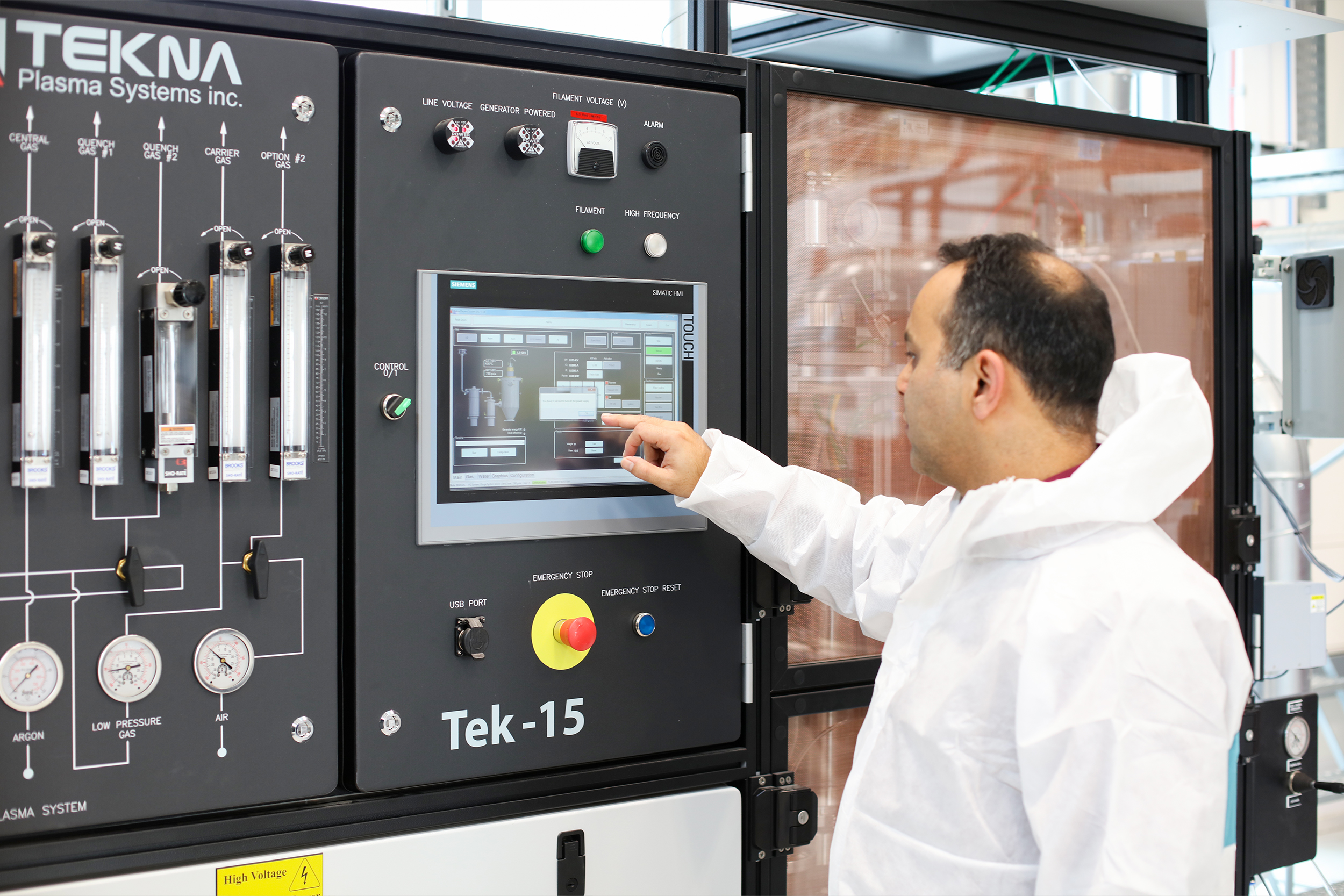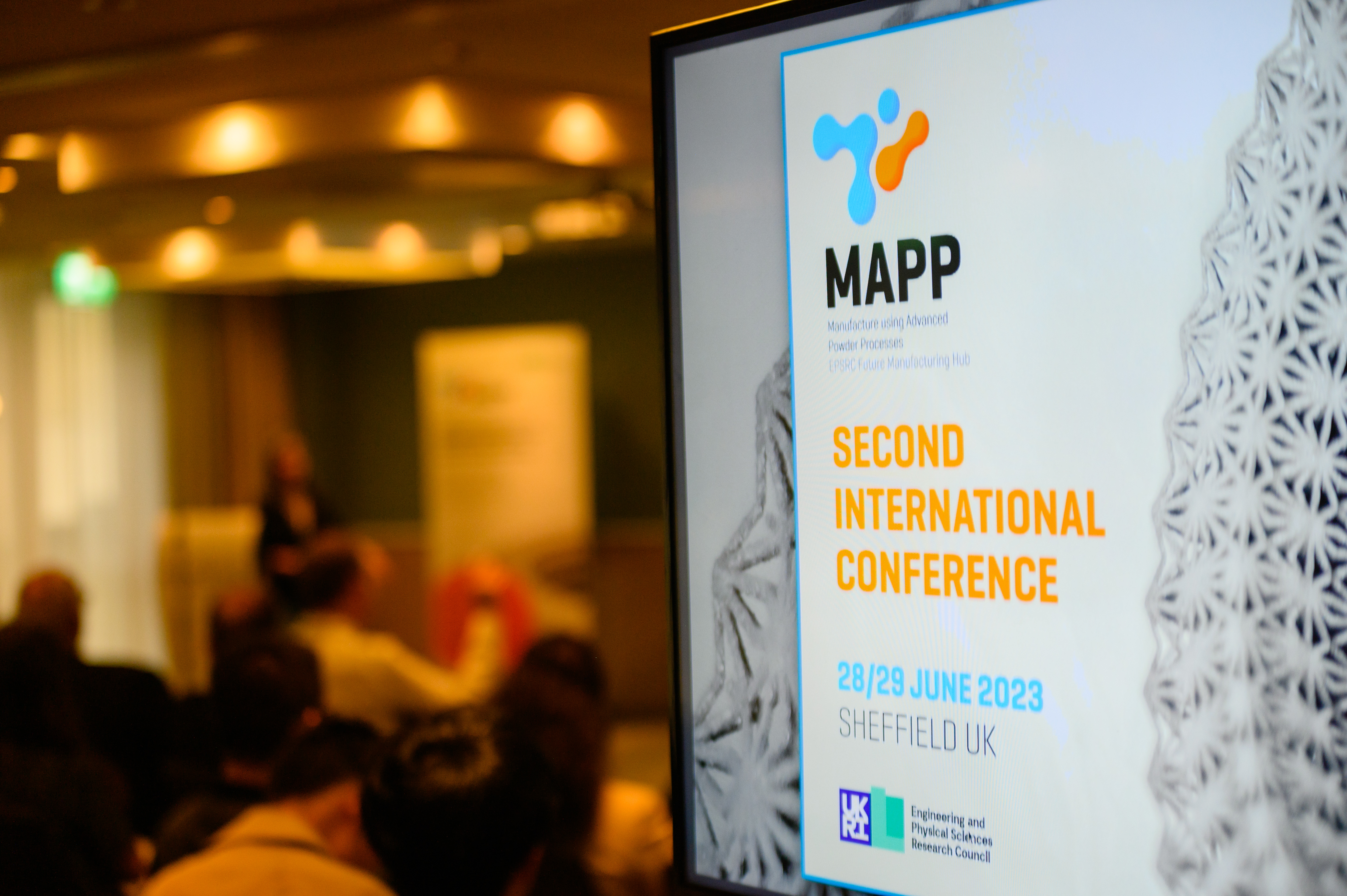All News /
News:
Advanced Metals Processing set to benefit from opening of new world-leading engineering research centres
12 / 10 / 18
Advanced Metals Processing and its related industries, such as additive manufacturing, are set to benefit from multi-million pounds of investment into three new advanced engineering research centres opened on Thursday 11 October at the University of Sheffield.
Northern Powerhouse Minister, Jake Berry MP, and Mayor of the Sheffield City Region, Dan Jarvis MP, officially opened the centres which aim to boost Sheffield City Region’s reputation as a hub for advanced engineering and industrial digital technologies.
The centres - the Royce Translational Centre (RTC), the Laboratory for Verification and Validation (LVV), and the Integrated Civil and Infrastructure Research Centre (ICAIR) - are located within the heart of the Sheffield City Region’s Advanced Manufacturing Innovation District, a key element of the emerging Global Innovation Corridor that stretches across the Sheffield City Region.

Working with companies to help develop new technologies, the centres will use the transformational power of research to cut costs and lead times which will revolutionise industrial processes.
As part of their visit, the Minister and Mayor were given a tour of the new centres by Professor Mike Hounslow, Vice-President and Head of the Faculty of Engineering at the University of Sheffield. Professor Hounslow highlighted some of the successful partnerships between the Centres and industry.
The RTC is home to Royce@Sheffield and the metals research group of AMRC, the National Metals Technology Centre (NAMTEC). Royce@Sheffield is one of the ‘spokes’ of the Henry Royce Institute, the UK national institute for advanced materials, and its work at the RTC is accelerating the benefits to industry in the field of Advanced Metal Processing.
It provides access to a range of specialist equipment such as the Consarc 25kg VIM, the Arcast gas atomiser and the Arcam Q10plus electron beam 3D printer to enable alloy development and production, powder production and parts production at a pre-commercialisation scale. Examples of projects include looking at cost reduction in additive manufacturing to allow more automotive applications, digital integration across the supply chain, end of life consideration for new materials and the development of advanced monitoring and sensing applications.
The Centre is engaging with large organisations, SMEs and institutes as well as partnerships through the Department of Materials Science and Engineering at the University, including projects with Siemens, Renishaw, Arcam, Aconity3D, Liberty Steel, Metalysis and Metron.
Metron Advanced Equipment Limited, based in Ilkeston, Derbyshire, is working with the RTC to produce parts for aerospace and automotive applications, such as jet engine components and turbochargers, from Titanium Aluminides (TiAl) using Additive Manufacturing (or 3D printing). Using advanced alloys with new technologies will enable the production of more complex parts with greater efficiency, providing the potential to exploit new commercial opportunities.
The three world-leading translational research facilities are each housed in custom designed prestigious new buildings, creating 3,000 sq.m of high-technology facilities at an investment of £47m part-funded by the European Regional Development Fund (ERDF) and UK Research and Innovation (UKRI). Each one builds upon the UK’s scientific research leadership to equip industry in these key priorities of the government’s Industrial Strategy.
The site is already home to the University of Sheffield’s world-leading Advanced Manufacturing Research Centre (AMRC) Factory 2050 - the UK’s first state-of-the-art reconfigurable factory, as well as aerospace giant Boeing’s new fabrication facility.
The work taking place at the three new centres builds on the experience and expertise of the nearby University of Sheffield’s Advanced Manufacturing Research Centre (AMRC) which works with partners such as Boeing, Rolls Royce and Airbus to help improve productivity, de-risk investment decisions, and accelerate the early adoption of industrial digital technologies to improve performance and quality.
The Minister praised the transformative work taking place and how it will allow businesses to gain access to university research expertise and use industrial digital technologies such as AI and robotics.
Professor Mike Hounslow, Vice-President and Head of the Faculty of Engineering, said: “At the University of Sheffield we deliver pioneering interdisciplinary research and find solutions to global challenges. The three centres launched today build on this established expertise and firmly place us as a key partner for industry. The capabilities of the centres will enable us to test and operate on an industrial scale, translating theory into application to improve productivity, cost efficiencies and innovation across a broad range of sectors”
Regius Professor Philip Withers, Chief Scientist of the Henry Royce Institute, said: ”The Royce Translational Centre at Sheffield is a major addition to UK capability in advanced metals research and, as part of the Henry Royce Institute, it will make available state-of-the-art facilities to organisations of all sizes that design, make and test new materials systems. This investment will help to accelerate innovation throughout the supply chain and support industry in adopting new digital technologies.”
This article was originally published on the Royce@Sheffield site.
More:
News
-

-
Exploring STEM - 4th May 2023
The MAPP Stand was a hit at the Exploring STEM for Girls event at the Octagon on the 4 May 2023.<...

